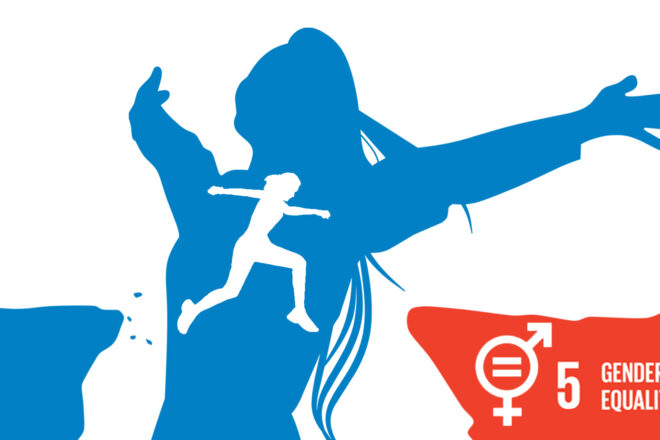The International Journal of Government Auditing (INTOSAI Journal) continually seeks to bring visibility to the 2030 Agenda for Sustainable Development, a plan of action adopted by all United Nations (UN) member states in 2015 calling for a global partnership to promote prosperity, encourage environmental protection and strengthen universal peace. At the heart of this plan are 17 interconnected Sustainable Development Goals (SDGs) that act as a blueprint to achieve an improved, more sustainable future and aim “to leave no one behind.”
In honor of International Women’s Day, we wanted to give a special nod to SDG 5, an ambitious goal that seeks to “achieve gender equality and empower all women and girls.”
The issue of women not being afforded the same opportunities as men has long been discussed. Initiatives to change this reality have long been explored. While there has been progress in workforce equality and inclusion, women are still underrepresented when it comes to holding leadership positions.
UN data on SDG 5 progress indicates 27% of managerial positions worldwide were held by women in 2018, a marginal increase from the 26% reported in 2015. Within the International Organization of Supreme Audit Institutions (INTOSAI) community, less than 25% of member Supreme Audit Institutions (SAIs) are led by women.
International Women’s Day provides an opportune time for our community to learn more about the impressive female leaders of now.
To better understand leadership challenges of the past, find encouragement for the present, and gain guidance for the future, we asked female SAI leaders to share personal stories about the most significant challenges faced; insight on pushing forward despite the challenges; and advice on increasing SAI female leadership.
The willingness to take on leadership positions is a cornerstone of success.
Dr. Margit Kraker, President, Austrian Court of Audit, and Secretary General of INTOSAI
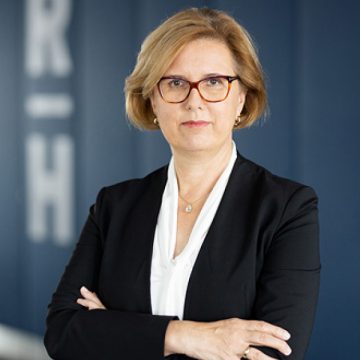
As a female leader, what has been your most significant challenge? As the first female president in the Austrian Court’s of Audit history, the aim was to bring about a change in culture. This involves much work but also comes with much positive feedback when things go well.
When you face challenges, what encourages you to push forward? One’s own knowledge and competence, as well as one’s own experience from goals achieved so far, are encouraging factors when it comes to firmly following the path.
What advice would you give to increase Supreme Audit Institution female leadership? Women should not shy away from assuming responsibility. The willingness to take on leadership positions is a cornerstone of success.
I believe greater efforts should be made to tap into and cultivate female leaders.
Hu Zejun, Auditor General of the National Audit Office of China
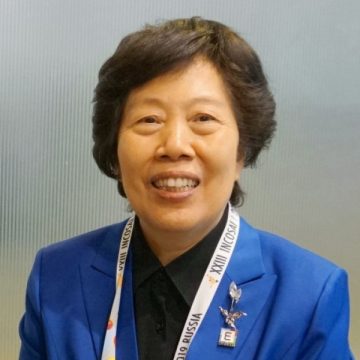
As a female leader, what has been your most significant challenge? Equality is a basic national policy in China, and many women serve as leaders in government entities, including the National Audit Office of China (CNAO), where top management (38%) and staff (50%) are women. Yet, objectively, women leaders are under pressure and facing challenges from society, family and work, the biggest of which is balancing career and family. As the first female Auditor General in China, it occurs to me that personal growth cannot be separated from the cultivation of my country, help of colleagues, as well as understanding and support from family, for which I am grateful.
When you face challenges, what encourages you to push forward? It is not an easy job to implement supervision, urge rectification and promote reform. The central government, all sectors of society and audit practitioners give me great courage and strength to move forward and faithfully perform my duties. Support from the highest levels of government, a broad understanding of all sectors and a dedicated team of government auditors—all working together—is the greatest impetus for me to meet any challenge I face.
What advice would you give to increase Supreme Audit Institution female leadership? It is worth mentioning that China has formed a package of laws and regulations protecting the rights and interests of women across all industries. I believe greater efforts should be made to tap into and cultivate female leaders. SAIs should focus on the strategic landscape and long-term development, which includes a proper platform for selection and growth of women leaders. Values on gender equality must be promoted. Female leaders should give rein to their superiority and leverage inherent qualities—diligent, meticulous, communicative, modest, and prudent—to add value to audit work.
On behalf of the CNAO, I extend my best wishes to female colleagues across INTOSAI. Happy International Women’s Day!
Convinced I would leave a better institution for Salvadoran citizens…I have worked tirelessly for reform.
Carmen Elena Rivas Landaverde, President of the Court of Accounts, Republic of El Salvador
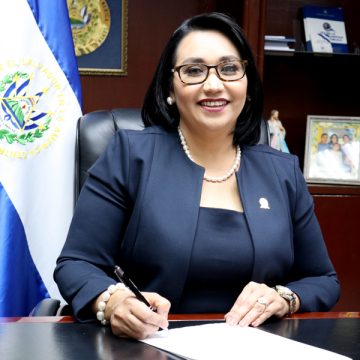
As a female leader, what has been your most significant challenge? As the first woman appointed as President of the Court of Accounts, breaking the patriarchal model and establishing a foundation to adapt SAI work to modern international standards according to national legal canons have been the biggest professional challenges I have faced. Convinced I would create a better institution for Salvadoran citizens and add value as a public official, I have worked tirelessly for reform and have prepared a proposal to transform the current regulatory framework. My experience, along with support from SAI staff, civil society and international development organizations, have strengthened my proposal, which is currently being debated in the State Treasury Commission.
When you face challenges, what encourages you to push forward? I am encouraged to be an example for my children and to inspire more women to move forward. I believe with effort, perseverance and the conviction that we have sufficient capacities and skills to overcome any challenge that arises, we can achieve all goals we set in life, especially in the academic and work environments, where competitiveness is increasingly complex.
What advice would you give to increase Supreme Audit Institution female leadership? My advice is to trust God and ourselves and work to strengthen our personality and self-esteem. I suggest we organize our time to better perform the daily activities that correspond as public servants and in the other roles we play—as mothers, daughters, sisters and friends. I also believe it is necessary for us to practice values, such as tolerance, solidarity, respect, and recognize the qualities of the other women around us. This will contribute to enhancing empowerment of our gender, personally and collectively.
I can build for future generations of women who wish to seek similar opportunities.
Maria Del Carmen Martinez Barahona, First Magistrate, Court of Accounts, Republic of El Salvador
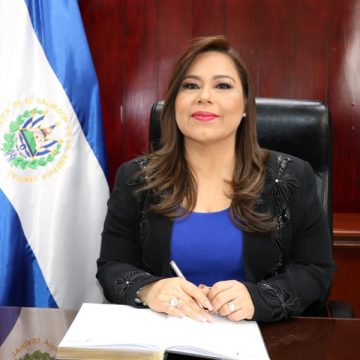
As a female leader, what has been your most significant challenge? As the first magistrate of the Court of Accounts, the most important challenge was applying to become an official of the institution and having to break the glass ceiling imposed by a deeply patriarchal society—one that, invisibly, creates fears and insecurities for women to opt for decision-making positions. As women, we are constantly questioned about our capabilities and cross-checked with the opposite sex, a perspective that tends to prevent women from holding positions at hierarchically higher levels.
When you face challenges, what encourages you to push forward? I am encouraged by the precedent that, as a woman in a decision-making position, I can build a foundations for future generations of women who wish to seek similar opportunities.
What advice would you give to increase Supreme Audit Institution female leadership? Feminine leadership must be strengthened—encouraging women to courageously apply for senior management positions; creating equitable and egalitarian orientations that positively affect an institution that commits to values and principles based on equity, equality and non-discrimination; and eliminating sexist barriers that prevent the rise of women.
A woman moves the cradle with one hand, and with the other the world.
Natalya Godunova, Chairwoman, Accounts Committee for Control over Republic Budget Execution, Kazakhstan
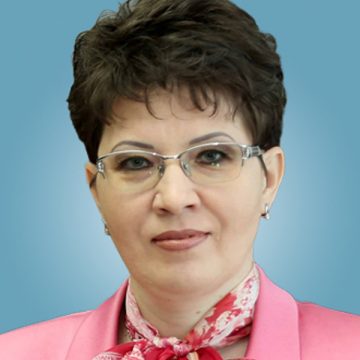
As a female leader, what has been your most significant challenge? As the first female SAI leader of Independent Kazakhstan, I quickly recognized the need for determined qualities. Yet, I also believe in demonstrating strong-willed traits at the right time. Additionally, as our SAI is a collegiate body, I feel it is important to consider opinions from all members of the Accounts Committee and find a compromise.
When you face challenges, what encourages you to push forward? Every challenge makes a person stronger and overcoming obstacles that arise along the way hardens and motivates us to achieve new goals, which should always be high. To quote our First President, Nursultan Nazarbayev, “The road is made by walking.” Therefore, we should not stop there. We should only move forward.
What advice would you give to increase Supreme Audit Institution female leadership? Pay attention to such women’s qualities as the ability to multitask, creativity, dedication, punctuality and responsibility. According to Kazakh folk wisdom, “A Woman moves the cradle with one hand, and with the other the world.” Such wisdom is exemplified by the amazing, highly-professional women who head SAIs from different countries or work in international organizations. In Kazakhstan, implementing gender policy is a primary strategic course for our country’s leadership, and roughly 20% of those who head central government agencies are women. In Parliament, 23% are female. In our SAI, approximately 40% of all employees are women, and those in leadership positions are 33%. Not bad, I think.
I must admit that it generally takes more to prove oneself if you are a woman than it does for a man. That shall change.
Elita Krumina, Auditor General, Republic of Latvia
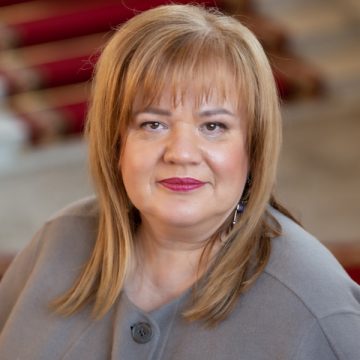
As a female leader, what has been your most significant challenge? Latvia is a country with relatively strong traditions of female leadership—women have been taking prominent roles in state governance, such as Head of the Competition Council, Auditor General, Speaker of the Parliament, Prime Minister, and President of the Republic of Latvia. Additionally, 30% of our Members of the Parliament, as well as 80% of SAI staff, are women. Yet, I must admit that it generally takes more to prove oneself if you are a woman than it does for a man. That shall change.
When you face challenges, what encourages you to push forward? I do not like to lose, especially when I see the great work of our team of auditors. I believe in their commitment, and I must uphold it. The belief in my team, along with my stubbornness, help me in hard times.
What advice would you give to increase Supreme Audit Institution female leadership? Societies do not change at once. Some countries have progressed significantly in matters of gender equality over the last hundred years, and my belief is that it will become more widespread as international attention to this issue increases and as SAIs continue to lead by example. Meanwhile, be better, speak up and believe in yourself. That is how I have been opening doors in my professional life, and if you read this, hopefully, you can do the same.
I always ask myself if the decision that emanates from the process will improve someone’s life.
Yusador Saadatu Gaye, Head of the General Auditing Commission, Liberia
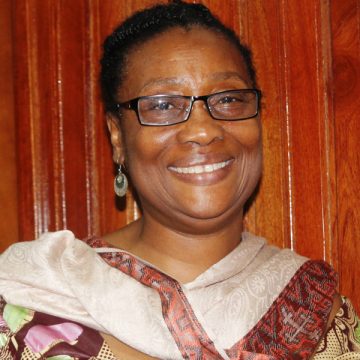
As a female leader, what has been your most significant challenge? When I was confirmed as the first female Auditor General, I faced many challenges. My appointment was politicized and my administration inherited a number of problems, including staff capacity, salary disparity and inadequate working conditions. The most significant challenge was ensuring the SAI’s full compliance with the Lima and Mexico declarations—to carry out our mandate unfettered. Through perseverance and insistence, the General Auditing Commission Act of 2014 was adopted with an outcome that was twofold: improvement in SAI operations and an ability to do our work backed by law without interference.
When you face challenges, what encourages you to push forward? I set my sights on the difference (no matter how small) I can make on citizens’ lives (including SAI staff). I ask myself if the decision that emanates from the process will lead to improvements. As female heads of SAIs, we have to work 200% to achieve desired impacts. I believe that using INTOSAI Pronouncement 12 as a reference point, serving as an example, and working to truly benefit citizens will also serve as encouragement to other women.
What advice would you give to increase Supreme Audit Institution female leadership? There is a lot of room to increase the number of women in SAI leadership. One way to do so is to provide opportunities for women to grow within the SAI, such as more opportunities for training and promotion. At a higher level, if current female SAI leaders perform their jobs with integrity and good governance, this will establish a basis for more women to be nominated or appointed. I also encourage each woman to be strong, steadfast, and, most all, govern by example—and you will make a difference.
The meaningfulness of the task and motivation to get to the best results for the people we serve encourage me.
Yusador Saadatu Gaye, Head of the General Auditing Commission, Liberia
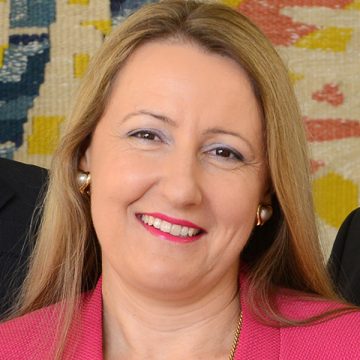
As a female leader, what has been your most significant challenge? Living a distinct difference as a female leader not imitating men’s leadership and having trust in my convictions.
When you face challenges, what encourages you to push forward? The meaningfulness of the task and the motivation to get to the best results for the people we serve.
What advice would you give to increase Supreme Audit Institution female leadership? Promote that female aspects and diversity in leadership and in teams will bring added value to the organization; motivate and strengthen women within SAIs to make career moves—you grow with your tasks, and mistakes are part of the learning process; and build a women’s network—ask for help and help others.
Work with passion as a driving force to make—and carry out—wise choices.
Yesmín M. Valdivieso, Comptroller of Puerto Rico
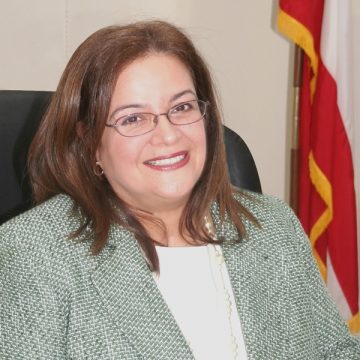
As a female leader, what has been your most significant challenge? As a female leader, I have felt empowered to assume important positions in the public sphere, including my most recent positions as Undersecretary of the Department of Treasury and Comptroller of Puerto Rico. My most significant challenge has been to impel audited entities to implement recommendations outlined in the Office of the Comptroller reports.
When you face challenges, what encourages you to push forward? I am inspired and encouraged to push forward by the desire for Puerto Rico to overcome dire economic conditions and reach common good for the citizens.
What advice would you give to increase Supreme Audit Institution female leadership? To increase and strengthen female leadership, the leader should follow the mission through teamwork and a high level of professionalism. I would advise to work with passion as a driving force to make—and carry out—wise choices.
Women and men are equally professional, competent, responsible and capable of leading.
María José de la Fuente y de la Calle, President, Spanish Court of Audit, and Secretary General of EUROSAI
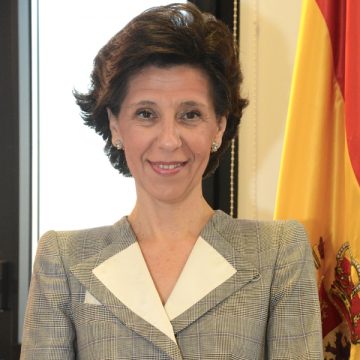
The appointment of women to lead relevant organizations shows clear evidence that women and men are equally professional, competent, responsible and capable to lead them successfully.
I believe the greatest achievement in equality consists precisely in the fact that this is internalized as a standard practice and is assumed, understood and applied with absolute normality, and not as a special or extraordinary event.
No doubt, more women are leading and holding important positions in public institutions. This is a reflection of the aforementioned evidence of equality.
It is also the result of committed, permanent, hard and active work to put these behaviors into practice—in an upward process that must continue to be promoted with intensity to avoid any resistance or reserve toward this reality.
As a professional woman, I will continue to dedicate all efforts, knowledge and initiative to promoting that the Spanish Court of Audit carries out its constitutional functions with the highest standards, at the service of the citizens, and with the will to continue making progress in terms of recognizing the added value equality brings.
Using Data to Better Understand Root Causes of Inequality
Public Finance by Women (PFW), a global organization established to promote gender equality in public services and support women during their careers, particularly in the field of public finance, identified a need for more data on gender equality.
In October 2019, PFW conducted a survey to test the temperature of gender equality, namely to identify any advancements and determine best forms of support and advice to help women succeed professionally.
“We strongly believe it is only when we have robust data that we will be informed as to whether or not women are breaking through the glass ceiling in sufficient numbers and be better equipped to understand, and provide solutions to, root causes of inequality.”
The survey, available here, includes key findings (derived from 107 respondents in 22 countries) on gender discrimination views; enabling factors aiding in success; and recommendations on advancing gender equality.


